
The Rights Forum | Dec 4, 2012
(Translation from original Dutch resource at The Rights Forum)
End of october 2012, 22 European social organisations presented the report “Trading Peace Away- How Europe helps sustain illegal Israeli settlements”
The preamble of this groundbreaking report was written by Hans Van Den Broek, former Minister of Foreign Affairs of the Netherlands, former Euro-commissioner and member of the Council of Advice of The Rights Forum.
In his preamble Van Den Broek points to the important recommendations of the report: tangible measurements with which the EU and her members can limit the Israeli settlement policy. The measurements are listed below:
- Taking care for correct labeling of settlement products, which now, are often sold as ‘made in Israel’ and there for are labeled deceptively.
- Discourage companies to trade with settlement companies or to invest in settlements.
- To forbid the import of products of settlements completely (alternative for measurements of less impact)
- Prevent that products made in settlements can be imported with tax exempt profits
- Exclude settlements consistently from all agreements/conventions and cooperation agreements which the EU and her member have agreed on with Israel.
- Exclude products of settlements as well as companies in settlements from tenders of the government.
- Expropriate social organizations, which invest in settlements the staus of “Charity” accompanied with tax benefits
- Prevent financial transactions which support settlements.
- Discourage European citizens to buy real estate in settlements.
- Compose regulations for European tour operators so they will not support settlements.
- Compose a list of all European companies who falsify the origin of settlement products.
- Enforce that the Israeli government distinguishes in Israel or settlements concerning statistical information which it hands over to the OECD.
Below an explanation per measurement, based on the text of the report:
A. Sales and imports of settlement products
1. Ensure correct consumer labelling of all settlement products: As a minimum measure in line with existing consumer protection legislation, European governments must issue guidelines to ensure all settlement products (including manufactured goods) are accurately labelled so that consumers are aware of their true origin and can make an informed choice.
Settlement products should be labelled as, for example, “West Bank (Israeli settlements)” to clearly distinguish them from both products made in Israel and Palestinian products. The European Commission should also provide EU-wide guidance for correct labelling of settlement products to ensure harmonisation.
2. Discourage companies from trading with and investing in settlements: As a more comprehensive measure than correct consumer labelling, national governments should issue formal advice to importers and other businesses to refrain from purchasing settlement goods and to avoid all other commercial and investment links with settlements. OECD Guidelines for Multinational Enterprises and the UN Guiding Principles on Business and Human Rights can be used as the relevant international framework. Companies involved in settlement-related economic activities should be called to account. The Norwegian government’s position on Western Sahara that discourages “trade, investment, resource-extraction and other forms of commercial activity” in that territory can serve as an example.
3. Ban imports of settlement products: As a further-reaching measure, governments could legally exclude settlement products from entry to the EU market. Trade in products of illegal settlements is inconsistent with EU foreign policy and, at least in cases of products involving the use of non-renewable resources such as water or minerals, may directly aid or assist ongoing breaches of international law. The Irish government has called for an EU-wide ban on imports from settlements167, but in the interim, national governments can implement such a measure. A ban on the import of Israeli settlement goods is not a ban or boycott on trade with Israel, which the signatories to this report do not advocate.
B. Excluding settlements from EU and national relations with Israel
4. Ensure settlement products do not benefit from preferential market access: In complementarity with the above measures on sales and imports, the EU and EFTA must revise the ‘Technical Arrangement’ with Israel to guarantee all settlement products are effectively excluded from referential treatment. In order to ensure that, and to properly implement EU’s own regulations, Europe must insist Israeli exporters start correctly designating the origin of settlement products, and cease designating them as ‘Israel’.
5. Exclude settlements from bilateral agreements and cooperation instruments: The EU and national governments must ensure agreements and cooperation instruments involving Israel cannot be applied to settlements:
● All agreements with Israel must include clear territorial provisions that explicitly restrict their application to Israel proper, regardless of Israeli domestic law. The EU’s newly ratified ACAA agreement, which does not contain an adequate territorial clause, should only be implemented if Israel itself formally limits its application to Israel proper.
● Regulations for cooperation programmes, including the EUfunded research programme Horizon2020 currently under discussion, must include legal safeguards that exclude participation of entities based or operating in settlements.
● National governments must apply the same provisions and safeguards in their bilateral relations with Israel.
6. Exclude settlement products and companies from public procurement: In tendering of public contracts, such as catering services or equipment supplies, EU institutions, governments, and state-funded bodies should specify that no settlement products or services may be supplied under the contract and that companies operating in settlements are excluded. This must be done before Israel is allowed increased access to public procurement markets in the EU, as currently envisaged under the EU-Israel Action Plan.
C. Financial transactions to settlements
7. Remove organisations funding settlements from tax deduction systems: National governments must ensure that gifts to organisations that provide funds to Israeli settlements are not tax-deductible. The Norwegian government’s decision in September 2012 to exclude the Karmel- nstituttet, a Norwegian organization that has collected donations for Israeli settlements, from its list of organisations eligible for tax deductible gifts, can serve as a model.
8. Prevent financial transactions supporting settlements and related activities: As a more comprehensive measure and as recommended by the EU’s Heads of Missions in the OP T, governments should apply restrictive measures to all financial transactions from their citizens, organisations and businesses in support of settlement activities breaching international law.173 In the absence of common EU action, such measures can be implemented by national governments.
D. Other measures
9. Discourage citizens from buying property in settlements: National governments must issue formal advice to citizens not to buy property in settlements, alerting them to the illegality of settlements, the doubtful legal title of most settlement properties and their uncertain future if a Palestinian state is established. Several EU member states have already issued such advice, but it should be strengthened and implemented by all member states.
10. Issue guidelines for European tour operators: As recommended by the EU’s Heads of Missions in the OP T, national governments must compile guidelines for tour operators to prevent support for settlement businesses, including hotels, bus operators, archaeological sites, etc.
11. Draw up a list of companies mis-stating the origin of settlement goods: As requested by the European Parliament, the European Commission should draw up a list of companies exporting settlement products, which persist in mis-stating the non-preferential origin of those goods as Israel. This measure would be complementary to the revision of the Technical Arrangement (no. 4 above).
12. Insist that Israel disaggregates settlement data for the OECD: European governments and other OECD members must require that statistical data provided by Israel always distinguishes between Israel proper and the settlements, in order to avoid validating an internationally unlawful situation. During its accession to the OECD in 2010, Israel had to commit to provide disaggregated statistics when required to do so. Since then, however, the OECD has failed to request Israel to do so.
“Settling” constitutes a warcime according to international law and ICC statute. Even under US’ own military legislations’
![]()
LAW
“States may not deport or transfer parts of their own civilian population into a territory they occupy.”
Summary
State practice establishes this rule as a norm of customary international law applicable in international armed conflicts.
International armed conflicts
The prohibition on deporting or transferring parts of a State’s own civilian population into the territory it occupies is set forth in the Fourth Geneva Convention.[1]
It is a grave breach of Additional Protocol I.[2]
Under the Statute of the International Criminal Court, “the transfer, directly or indirectly, by the Occupying Power of parts of its own civilian population into the territory it occupies” constitutes a war crime in international armed conflicts.[3]
Many military manuals prohibit the deportation or transfer by a party to the conflict of parts of its civilian population into the territory it occupies.[4]
This rule is included in the legislation of numerous States.[5]
Official statements and reported practice also support the prohibition on transferring one’s own civilian population into occupied territory.[6]
Attempts to alter the demographic composition of an occupied territory have been condemned by the UN Security Council.[7]
In 1992, it called for the cessation of attempts to change the ethnic composition of the population, anywhere in the former Yugoslavia.[8]
Similarly, the UN General Assembly and UN Commission on Human Rights have condemned settlement practices.[9]
According to the final report of the UN Special Rapporteur on the Human Rights Dimensions of Population Transfer, including the Implantation of Settlers and Settlements, “the implantation of settlers” is unlawful and engages State responsibility and the criminal responsibility of individuals.[10]
In 1981, the 24th International Conference of the Red Cross reaffirmed that “settlements in occupied territory are incompatible with article 27 and 49 of the Fourth Geneva Convention”.[11]
In the Case of the Major War Criminals in 1946, the International Military Tribunal at Nuremberg found two of the accused guilty of attempting the “Germanization” of occupied territories.[12]
References
[1] Fourth Geneva Convention, Article 49, sixth paragraph (cited in Vol. II, Ch. 38, § 334).
[2] Additional Protocol I, Article 85(4)(a) (adopted by consensus) (ibid., § 335).
[3] ICC Statute, Article 8(2)(b)(viii) (ibid., § 336).
[4] See, e.g., the military manuals of Argentina (ibid., §§ 346–347), Australia (ibid., § 348), Canada (ibid., § 349), Croatia (ibid., § 350), Hungary (ibid., § 351), Italy (ibid., § 352), Netherlands (ibid., § 353), New Zealand (ibid., § 354), Spain (ibid., § 355), Sweden (ibid., § 357), Switzerland (ibid., § 357), United Kingdom (ibid., § 358) and United States (ibid., § 359).
[5] See, e.g., the legislation of Armenia (ibid., § 361), Australia (ibid., §§ 362–363), Azerbaijan (ibid., §§ 364–365), Bangladesh (ibid., § 366), Belarus (ibid., § 367), Belgium (ibid., § 368), Bosnia and Herzegovina (ibid., § 369), Canada (ibid., §§ 371–372), Congo (ibid., § 373), Cook Islands (ibid., § 374), Croatia (ibid., § 375), Cyprus (ibid., § 376), Czech Republic (ibid., § 377), Germany (ibid., § 379), Georgia (ibid., § 380), Ireland (ibid., § 381), Mali (ibid., § 384), Republic of Moldova (ibid., § 385), Netherlands (ibid., § 386), New Zealand (ibid., §§ 387–388), Niger (ibid., § 390), Norway (ibid., § 391), Slovakia (ibid., § 392), Slovenia (ibid., § 393), Spain (ibid., § 394), Tajikistan (ibid., § 395), United Kingdom (ibid., §§ 397–398), Yugoslavia (ibid., § 399) and Zimbabwe (ibid., § 400); see also the draft legislation of Argentina (ibid., § 360), Burundi (ibid., § 370), Jordan (ibid., § 382), Lebanon (ibid., § 383) and Trinidad and Tobago (ibid., § 396).
[6] See, e.g., the statements of Kuwait (ibid., § 405) and United States (ibid., §§ 406–407) and the reported practice of Egypt (ibid., § 402) and France (ibid., § 403).
[7] See, e.g., UN Security Council, Res. 446 , 452 and 476 (ibid., § 408), Res. 465 (ibid., § 409) and Res. 677 (ibid., § 410).
[8] UN Security Council, Res. 752 (ibid., § 411).
[9] See, e.g., UN General Assembly, Res. 36/147 C, 37/88 C, 38/79 D, 39/95 D and 40/161 D (ibid., § 412) and Res. 54/78 (ibid., § 405); UN Commission on Human Rights, Res. 2001/7 (ibid., § 413).
[10] UN Sub-Commission on Human Rights, Final report of the Special Rapporteur on the Human Rights Dimensions of Population Transfer, including the Implantation of Settlers and Settlements (ibid., § 415).
[11] 24th International Conference of the Red Cross, Res. III (ibid., § 419).
[12] International Military Tribunal at Nuremberg, Case of the Major War Criminals, Judgement (ibid., § 421).

 December 4, 2012
December 4, 2012 
 Still live in fairy-tale-land about Israel? Time to wake up: The Map of the “Greater Israel” even is hammered on the currency:All facts at Storify continuously updated. Read what Israeli ‘leaders’ have said and done even before (peace) talks and how their actions contradict the reality and ugly facts which they try to hide from you:
Still live in fairy-tale-land about Israel? Time to wake up: The Map of the “Greater Israel” even is hammered on the currency:All facts at Storify continuously updated. Read what Israeli ‘leaders’ have said and done even before (peace) talks and how their actions contradict the reality and ugly facts which they try to hide from you:




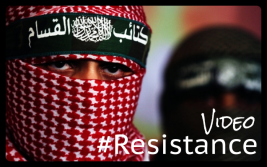

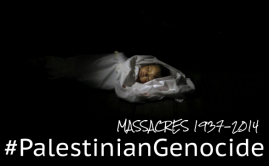





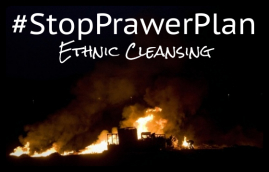






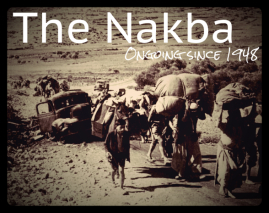




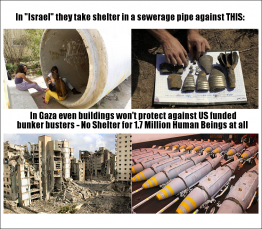





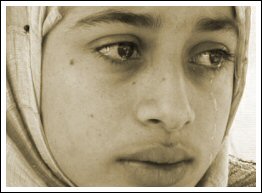
Comments are closed.